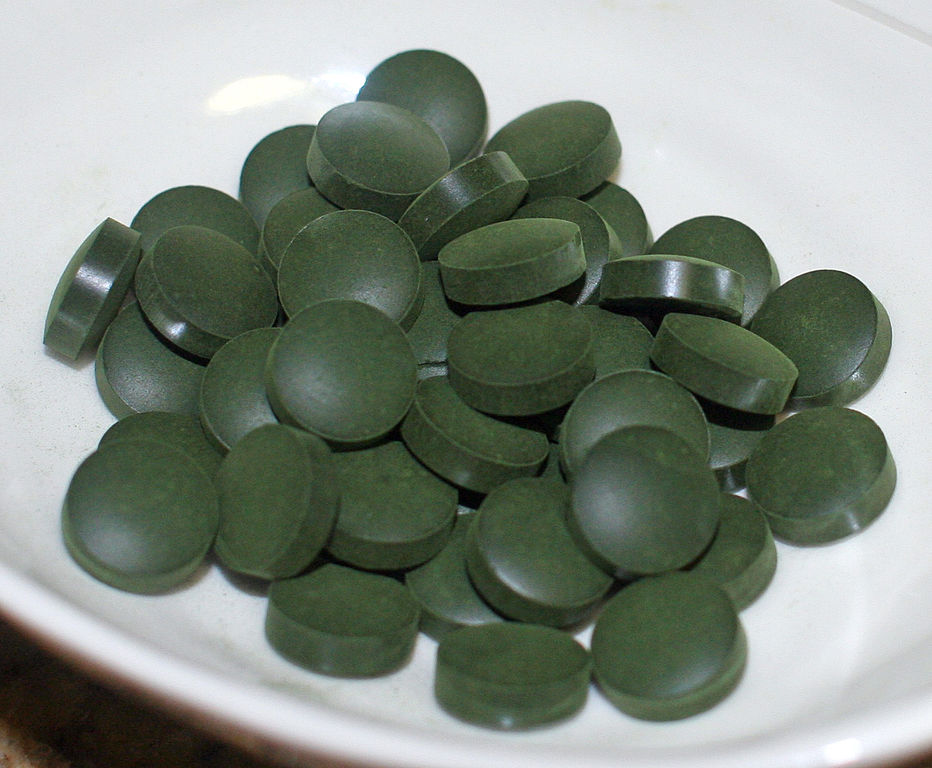Spirulina Contains More Protein Than Meat and Can Treat Numerous Diseases
Spirulina is a millennial sea alga that has served as a food source since the 9th century. It wasn’t until the 70s when it began to be sold, with a French company being responsible for bringing it to the market. It became well known after NASA used it as a food supplement for astronauts during space missions.

Spirulina contains more protein than meat and soy. It has a 65-71% amount of complete protein, while soy and beef only have 26% and 22%. 2 tablespoons of spirulina powder are enough to replace a meal that is rich in protein. This alga also contains essential amino acids and minerals that are easily absorbed by the body.
Due to the large concentration of nutrients, spirulina can offer the body an impressive package that covers a wide range of needs: it has vitamins (including B12), provitamin A, minerals (especially iron), chlorophyll, antioxidants (phenolic acids), tocopherols and linoleic acid.
Studies have shown that it has immunomodulating, antiviral, antiallergic, anti-inflammatory, hypolipidemic and anticarcinogenic properties.
Contents
It has immunostimulating, antibacterial and antiviral properties
Spirulina acts as a powerful stimulator of the immune system, having antibacterial and antiviral properties. It keeps the uncontrolled candidiasis growth in check and inactivates the immunodeficiency virus associated with HIV and AIDS. Products using spirulina have proven to be effective against herpes, cytomegalovirus, and flu virus as well.
Due to its antioxidant effects, spirulina protects the tissues and reduces toxicity in liver, kidneys, and testicles. Researchers in Bangladesh have discovered that spirulina can help patients find improvement from arsenic poisoning from the water.
It reduces allergies
This sea alga can be very helpful to those suffering from seasonal allergies or allergies caused by pollen, plants, dust, mold, hair or animal fur.
As opposed to anti-histaminic, which inhibit the immune system and reduce the resistance of the body, spirulina serves to improve the immunity and inhibits the release of histamines (compounds that trigger allergies).
A study has shown that spirulina improves symptoms such as sneezing, nasal congestion, rinorheea, and itchiness.
It regulates blood pressure and cholesterol
A study done in Mexico has shown that a daily dose of 4.5 g of spirulina for 6 weeks has stabilized the level of blood pressure, without the participants doing making any changes in their diet. Another study done in persons ranging from 60 to 87 years in ages has shown that 8 g of spirulina for 16 days decreased the level of cholesterol.
How to use spirulina
Spirulina is used in various forms: capsules, tablets, powder and flakes being the most common. It is crucial to make sure that it comes from a good source and that it is not contaminated with heavy metals and other toxins.
Caution
It is good to start with a small dose, since the detoxifying effect it has on the body can lead to various side effects. The daily recommended dose is 3-5 g, divided into 2-3 portions taken throughout the day. It is important to consume a lot of water in order to help it become properly absorbed into your body.
However, this alga remains a miraculous supplement, and the vast majority of people will see incredible benefits if they consume it regularly.




unfortunately you are depriving the whales of their food by processing for humans… tragic when we don’t really need it for OUR health but the whales do.
We do need it for our health. I’ve been using it for 25yrs and haven’t had the flu once since. Don’t listen to the ignorance of others, they know not what they say. My dogs take this twice a day as well. We live w vitality over here. Follow me for more non bs advice!